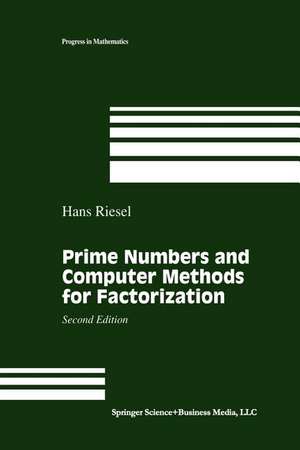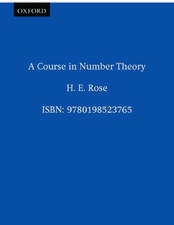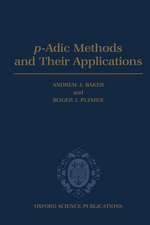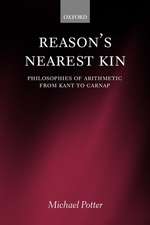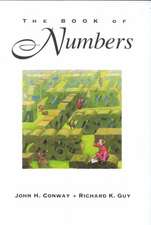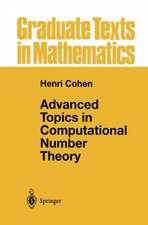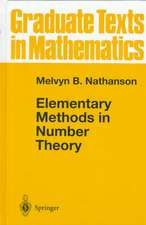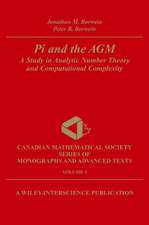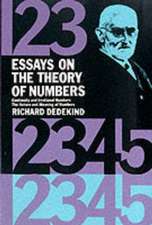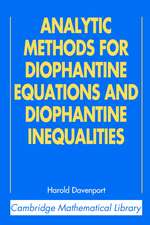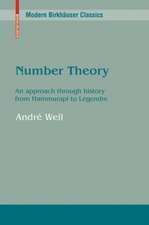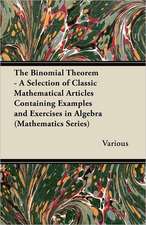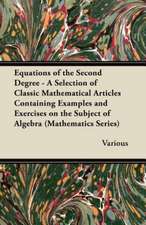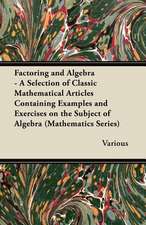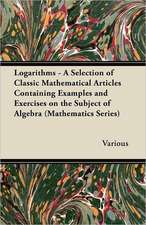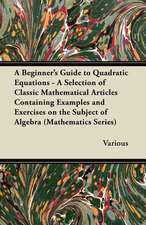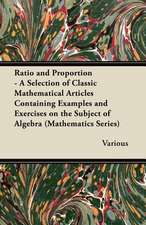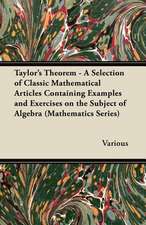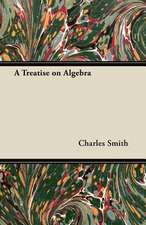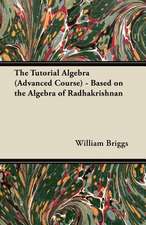Prime Numbers and Computer Methods for Factorization: Progress in Mathematics, cartea 126
Autor Hans Rieselen Limba Engleză Paperback – 30 sep 2012
Hans Riesel’s highly successful first edition of this book has now been enlarged and updated with the goal of satisfying the needs of researchers, students, practitioners of cryptography, and non-scientific readers with a mathematical inclination. It includes important advances in computational prime number theory and in factorization as well as re-computed and enlarged tables, accompanied by new tables reflecting current research by both the author and his coworkers and by independent researchers.
The book treats four fundamental problems: the number of primes below a given limit, the approximate number of primes, the recognition of primes and the factorization of large numbers. The author provides explicit algorithms and computer programs, and has attempted to discuss as many of the classically important results as possible, as well as the most recent discoveries. The programs include are written in PASCAL to allow readers to translate the programs into the language of their own computers.
The independent structure of each chapter of the book makes it highly readable for a wide variety of mathematicians, students of applied number theory, and others interested in both study and research in number theory and cryptography.
| Toate formatele și edițiile | Preț | Express |
|---|---|---|
| Paperback (2) | 536.63 lei 6-8 săpt. | |
| Birkhäuser Boston – 22 noi 2011 | 536.63 lei 6-8 săpt. | |
| Birkhäuser Boston – 30 sep 2012 | 593.08 lei 6-8 săpt. | |
| Hardback (1) | 600.87 lei 6-8 săpt. | |
| SPRINGER NATURE – oct 1994 | 600.87 lei 6-8 săpt. |
Din seria Progress in Mathematics
- 24%
 Preț: 687.36 lei
Preț: 687.36 lei - 24%
 Preț: 740.80 lei
Preț: 740.80 lei - 9%
 Preț: 763.33 lei
Preț: 763.33 lei -
 Preț: 308.20 lei
Preț: 308.20 lei - 20%
 Preț: 695.88 lei
Preț: 695.88 lei -
 Preț: 362.51 lei
Preț: 362.51 lei -
 Preț: 308.13 lei
Preț: 308.13 lei - 18%
 Preț: 749.27 lei
Preț: 749.27 lei - 9%
 Preț: 766.42 lei
Preț: 766.42 lei - 20%
 Preț: 631.09 lei
Preț: 631.09 lei - 24%
 Preț: 638.88 lei
Preț: 638.88 lei - 15%
 Preț: 580.82 lei
Preț: 580.82 lei -
 Preț: 392.37 lei
Preț: 392.37 lei -
 Preț: 395.09 lei
Preț: 395.09 lei -
 Preț: 390.25 lei
Preț: 390.25 lei -
 Preț: 376.80 lei
Preț: 376.80 lei - 18%
 Preț: 729.53 lei
Preț: 729.53 lei - 15%
 Preț: 652.49 lei
Preț: 652.49 lei - 15%
 Preț: 649.22 lei
Preț: 649.22 lei - 18%
 Preț: 897.95 lei
Preț: 897.95 lei -
 Preț: 385.08 lei
Preț: 385.08 lei -
 Preț: 391.02 lei
Preț: 391.02 lei -
 Preț: 378.54 lei
Preț: 378.54 lei - 15%
 Preț: 531.59 lei
Preț: 531.59 lei - 15%
 Preț: 642.83 lei
Preț: 642.83 lei - 15%
 Preț: 650.69 lei
Preț: 650.69 lei -
 Preț: 381.21 lei
Preț: 381.21 lei -
 Preț: 392.37 lei
Preț: 392.37 lei -
 Preț: 398.53 lei
Preț: 398.53 lei - 15%
 Preț: 699.28 lei
Preț: 699.28 lei -
 Preț: 416.92 lei
Preț: 416.92 lei -
 Preț: 385.84 lei
Preț: 385.84 lei - 18%
 Preț: 902.65 lei
Preț: 902.65 lei - 18%
 Preț: 802.28 lei
Preț: 802.28 lei - 15%
 Preț: 640.06 lei
Preț: 640.06 lei - 18%
 Preț: 1129.83 lei
Preț: 1129.83 lei
Preț: 593.08 lei
Preț vechi: 697.75 lei
-15% Nou
Puncte Express: 890
Preț estimativ în valută:
113.52€ • 123.35$ • 95.42£
113.52€ • 123.35$ • 95.42£
Carte tipărită la comandă
Livrare economică 21 aprilie-05 mai
Preluare comenzi: 021 569.72.76
Specificații
ISBN-13: 9781461266815
ISBN-10: 1461266815
Pagini: 484
Ilustrații: XVI, 464 p.
Dimensiuni: 155 x 235 x 30 mm
Greutate: 0.67 kg
Ediția:Softcover reprint of the original 2nd ed. 1994
Editura: Birkhäuser Boston
Colecția Birkhäuser
Seria Progress in Mathematics
Locul publicării:Boston, MA, United States
ISBN-10: 1461266815
Pagini: 484
Ilustrații: XVI, 464 p.
Dimensiuni: 155 x 235 x 30 mm
Greutate: 0.67 kg
Ediția:Softcover reprint of the original 2nd ed. 1994
Editura: Birkhäuser Boston
Colecția Birkhäuser
Seria Progress in Mathematics
Locul publicării:Boston, MA, United States
Public țintă
ResearchCuprins
1. The Number of Primes Below a Given Limit.- 2. The Primes Viewed at Large.- 3. Subtleties in the Distribution of Primes.- 4. The Recognition of Primes.- 5. Classical Methods of Factorization.- 6. Modem Factorization Methods.- 7. Prime Numbers and Cryptography.- Appendix 1. Basic Concepts in Higher Algebra.- Modules.- Euclid’s Algorithm.- The Labor Involved in Euclid’s Algorithm.- A Definition Taken from the Theory of Algorithms.- A Computer Program for Euclid’s Algorithm.- Reducing the Labor.- Binary Form of Euclid’s Algorithm.- Groups.- Lagrange’s Theorem. Cosets.- Abstract Groups. Isomorphic Groups.- The Direct Product of Two Given Groups.- Cyclic Groups.- Rings.- Zero Divisors.- Fields.- Mappings. Isomorphisms and Homomorphisms.- Group Characters.- The Conjugate or Inverse Character.- Homomorphisms and Group Characters.- Appendix 2. Basic Concepts in Higher Arithmetic.- Divisors. Common Divisors.- The Fundamental Theorem of Arithmetic.- Congruences.- Linear Congruences.- Linear Congruences and Euclid’s Algorithm.- Systems of Linear Congruences.- Carmichael’s Function.- Carmichael’s Theorem.- Appendix 3. Quadratic Residues.- Legendre’s Symbol.- Arithmetic Rules for Residues and Non-Residues.- The Law of Quadratic Reciprocity.- Jacobi’s Symbol.- Appendix 4. The Arithmetic of Quadratic Fields.- Appendix 5. Higher Algebraic Number Fields.- Algebraic Numbers.- Appendix 6. Algebraic Factors.- Factorization of Polynomials.- The Cyclotomic Polynomials.- Aurifeuillian Factorizations.- Factorization Formulas.- The Algebraic Structure of Aurifeuillian Numbers.- Appendix 7. Elliptic Curves.- Cubics.- Rational Points on Rational Cubics.- Homogeneous Coordinates.- Elliptic Curves.- Rational Points on Elliptic Curves.- Appendix 8. Continued Fractions.- What Isa Continued Fraction?.- Regular Continued Fractions. Expansions.- Evaluating a Continued Fraction.- Continued Fractions as Approximations.- Euclid’s Algorithm and Continued Fractions.- Linear Diophantine Equations and Continued Fractions.- A Computer Program.- Continued Fraction Expansions of Square Roots.- Proof of Periodicity.- The Maximal Period-Length.- Short Periods.- Continued Fractions and Quadratic Residues.- Appendix 9. Multiple-Precision Arithmetic.- Various Objectives for a Multiple-Precision Package.- How to Store Multi-Precise Integers.- Addition and Subtraction of Multi-Precise Integers.- Reduction in Length of Multi-Precise Integers.- Multiplication of Multi-Precise Integers.- Division of Multi-Precise Integers.- Input and Output of Multi-Precise Integers.- A Complete Package for Multiple-Precision Arithmetic.- A Computer Program for Pollard’s rho Method.- Appendix 10. Fast Multiplication of Large Integers.- The Ordinary Multiplication Algorithm.- Double Length Multiplication.- Recursive Use of Double Length Multiplication Formula.- A Recursive Procedure for Squaring Large Integers.- Fractal Structure of Recursive Squaring.- Large Mersenne Primes.- Appendix 11. The Stieltjes Integral.- Functions With Jump Discontinuities.- The Riemann Integral.- Definition of the Stieltjes Integral.- Rules of Integration for Stieltjes Integrals.- Integration by Parts of Stieltjes Integrals.- The Mean Value Theorem.- Applications.- Tables. For Contents.- List of Textbooks.
Recenzii
"Here is an outstanding technical monograph on recursive number theory and its numerous automated techniques. It successfully passes a critical milestone not allowed to many books, viz., a second edition. Many good things have happened to computational number theory during the ten years since the first edition appeared and the author includes their highlights in great depth. Several major sections have been rewritten and totally new sections have been added. The new material includes advances on applications of the elliptic curve method, uses of the number field sieve, and two new appendices on the basics of higher algebraic number fields and elliptic curves. Further, the table of prime factors of Fermat numbers has been significantly up-dated. ...Several other tables have been added so as to provide data to look for large prime factors of certain 'generalized' Fermat numbers, while several other tables on special numbers were simply deleted in the second edition. Still one can make several perplexing assertions or challenges: (1) prove that F\sb 5, F\sb 6, F\sb 7, F\sb 8 are the only four consecutive Fermat numbers which are bi-composite; (2) Show that F\sb{14} is bi- composite. (This accounts for the difficulty in finding a prime factor for it.) (3) What is the smallest Fermat quadri-composite?; and (4) Does there exist a Fermat number with an arbitrarily prescribed number of prime factors? All in all, this handy volume continues to be an attractive combination of number-theoretic precision, practicality, and theory with a rich blend of computer science."
–Zentralblatt Math
–Zentralblatt Math
Textul de pe ultima copertă
In the modern age of almost universal computer usage, practically every individual in a technologically developed society has routine access to the most up-to-date cryptographic technology that exists, the so-called RSA public-key cryptosystem. A major component of this system is the factorization of large numbers into their primes. Thus an ancient number-theory concept now plays a crucial role in communication among millions of people who may have little or no knowledge of even elementary mathematics.
Hans Riesel’s highly successful first edition of this book has now been enlarged and updated with the goal of satisfying the needs of researchers, students, practitioners of cryptography, and non-scientific readers with a mathematical inclination. It includes important advances in computational prime number theory and in factorization as well as re-computed and enlarged tables, accompanied by new tables reflecting current research by both the author and his coworkers and by independent researchers.
The book treats four fundamental problems: the number of primes below a given limit, the approximate number of primes, the recognition of primes and the factorization of large numbers. The author provides explicit algorithms and computer programs, and has attempted to discuss as many of the classically important results as possible, as well as the most recent discoveries. The programs include are written in PASCAL to allow readers to translate the programs into the language of their own computers.
The independent structure of each chapter of the book makes it highly readable for a wide variety of mathematicians, students of applied number theory, and others interested in both study and research in number theory and cryptography.
Hans Riesel’s highly successful first edition of this book has now been enlarged and updated with the goal of satisfying the needs of researchers, students, practitioners of cryptography, and non-scientific readers with a mathematical inclination. It includes important advances in computational prime number theory and in factorization as well as re-computed and enlarged tables, accompanied by new tables reflecting current research by both the author and his coworkers and by independent researchers.
The book treats four fundamental problems: the number of primes below a given limit, the approximate number of primes, the recognition of primes and the factorization of large numbers. The author provides explicit algorithms and computer programs, and has attempted to discuss as many of the classically important results as possible, as well as the most recent discoveries. The programs include are written in PASCAL to allow readers to translate the programs into the language of their own computers.
The independent structure of each chapter of the book makes it highly readable for a wide variety of mathematicians, students of applied number theory, and others interested in both study and research in number theory and cryptography.
Caracteristici
Includes supplementary material: sn.pub/extras
